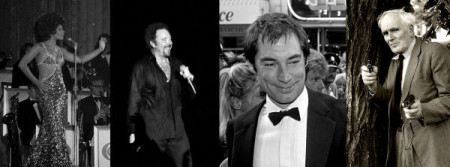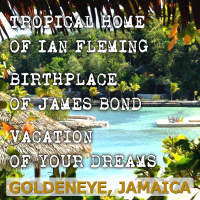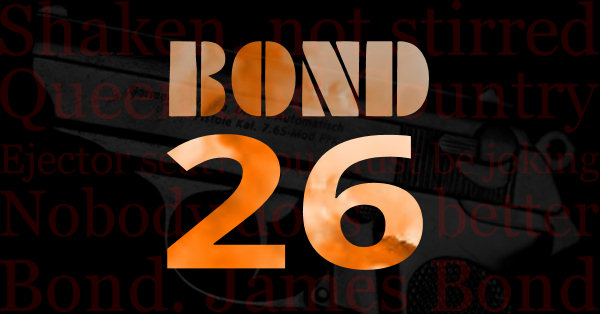With Aston Martin’s recent announcement that they will build a new production plant in Wales, James Bond’s connection to the Land of Song was renewed. When the first Aston Martin DBXs roll off the St Athan production line in 2020 we can hope to see James Bond put the sporty crossover through its paces and know that in this, at least, the influence of Wales on the Bond canon continues.

Photo montage: Mallet100, Bart Molendijk, Towpilot and Georgio. Licenced under Creative Commons.
To many around the world, James Bond is the epitome of the English gentleman. From his establishment schooling at Eton and Cambridge, his Turnbull and Asser bespoke shirts, his Royal Navy commander’s uniform, to his penchant for Aston Martins, Bond looks and acts the very part of the English club-land hero. Although Bond certainly exudes Englishness and has a penchant for the term England when he really meant Britain, he’s not entirely English.
To explain Connery’s Scottish burr, Bond’s creator, Ian Fleming, threw in a little bit of Scotland into the Bond mix. Bond’s father was Scottish and Bond’s completed his own prep-schooling at Fettes in Edinburgh. So at least the Scots got some link into the Bond mythos whereas poor old Wales has no part of the Bond origin story at all.
Yet Bond has been Welsh. Ironically perhaps given Bond’s status as an Englishman, only two of the six Bonds, Roger Moore and Daniel Craig, have actually been English. The fourth man to play Bond, Timothy Dalton, is a Welshman. Although brought up in Derbyshire, Dalton was born in the Welsh coastal town of Colwyn Bay. And, although he isn’t well known for a natural Welsh accent there are proud Welsh Bond fans out there that swear that, every so often in The Living Daylights and Licence to Kill that there’s a Welsh lilt to Dalton’s Bond.
Not surprising perhaps giving that in a number of scenes in The Living Daylights the Welsh Bond sparred with KGB General Leonid Pushkin who also happened to be Welsh actor John Rhys-Davies. Rhys-Davies always brings some Welsh into his performances, whether it is Pushkin, Sallah in Raiders of the Lost Ark, or Gimli in Lord of the Rings and maybe this rubbed off on Dalton.
Irrespective of the debate around Dalton’s accent, he clearly brought a more brooding, moody, dark, (perhaps a more Celtic) quality to Bond. But as fine an actor Dalton is, the Bond canon missed out on securing the services of one of the best Welsh actors ever, indeed, one of the greatest actors of all time in Richard Burton. As Fleming cast his eye around actors he wanted to play the first cinematic incarnation of Bond he thought that Burton would be a great James Bond but the fiery Welshman turned the role down.
The mind boggles at to what Burton would have brought to the character of Bond and how the role of Bond would have evolved after a Burton performance or two. Ironically perhaps, Burton would eventually go on to play a British spy, albeit one very different than Bond. Burton’s spy, The Spy Who Came in from the Cold’s Alec Leamas, originally penned by John le Carré, is almost the antithesis of Bond.
Other Welsh actors have, however, left indelible marks on the Bond canon. No more so than Desmond Llewelyn. Llewelyn played MI6’s quartermaster, “Q”, in from From Russia with Love though to The World is Not Enough only missing out in appearing in Live And Let Die. No other actor is ever likely to repeat the Newport born Llewelyn’s track record of appearing in 17 Bond movies and in the screen adaptation of Fleming’s other fictional character, Chitty Chitty Bang Bang.
Bond villains usually provide actors with interesting character studies. Tomorrow Never Dies’ villain, the megalomania media mogul Elliot Carver, was played with dramatic understatement by Welshman Jonathan Pryce. Pryce (who changed his name for the more Welsh “Price”) was born near Holywell just about 25 miles down the road from Timothy Dalton and a shorter 21 miles, over the border, to where Daniel Craig was born.
Actors don’t create a character in a vacuum of their own creativity. They breathe life into a character that has been created by a talented screenwriter. The screenwriter for You Only Live Twice was Roald Dahl, perhaps more famous for penning Charlie and the Chocolate Factory, James and the Giant Peach, and the BFG. Less famous, especially given his Norwegian name, for being Welsh.
Dahl was well qualified for his Bond screenwriting duties having led a life not too dissimilar from a character that could have appeared in a Bond novel or film. Not surprisingly when you take into account that Dahl and Fleming knew each other from their time working in different arms of British intelligence during World War II. And the Fleming – Dahl connection continued on as Dahl also wrote the screenplay for Chitty Chitty Bang Bang.
An important part of the look and feel of a Bond movie, indeed, of the Bond Brand as a whole, is the way the clothes and costumes reflect style, character, and even the prevailing zeitgeist. The look and style for the Bond films Goldeneye, Tomorrow Never Dies, The World is Not Enough, Die Another Day and Casino Royale were created by Welsh costume designer (and Oscar winner) Lindy Hemming with nary a leek or daffodil in sight.
As Wales is considered the land of song it should come as no surprise that the Welsh have made signal contributions to the world of Bond music. Shirley Bassey and Tom Jones have contributed mightily to the pantheon of Bond themes. Bassey’s rendition of Goldfinger set the gold standard for all the other themes that followed, including her own returns to sing the themes for Diamonds are Forever and Moonraker.
Her contemporary and compatriot Tom Jones brought his inimical power and style to Thunderball. There is something in the vocal performance of these two working-class Welsh singers that captured some of same insouciant anti-establishment expression that Connery brought to his performance as Bond. The bravura performances of Bassey and Jones added immeasurably to the mid-1960s cultural explosion of Bondmania which clearly established Bond as a worldwide icon with a global audience.
Although considered the land of song, Wales is well known for its beautiful, diverse, and rugged landscapes. It’s hard to believe that Bond wouldn’t be familiar with the rugged, testing conditions found in many parts of Wales. Surely MI6 has had him testing his endurance and stamina on training exercises in Snowdonia or with the SAS across the Brecon Beacons?
But, although Wales fails to make it on to the pages of the Fleming novels and isn’t name checked on film, it has provided some important background locations for a number of scenes through a number of the Bond canon including The World is Not Enough, From Russia With Love, Die Another Day, and Quantum of Solace. Unfortunately for Welsh tourism, at least, Eon’s request to film scenes for SPECTRE in the Welsh Assembly’s impressive Cardiff Senedd chamber was rejected. Perhaps the members of the Assembly didn’t want to be associated with SPECTRE as all politicians at all times want to be seen on the side of the righteous.
So although Wales appears to never have crossed Fleming’s mind as a land, or people, or plot points, the contribution of the Welsh to the realm of Bond have been significant, enduring, and endearing.
Julian Parrott has been a James Bond fan ever since his parents took him to the cinema to see Diamonds are Forever. He’s currently a US university administrator who gets to teach a course on James Bond and Social Change for incoming first year students. For more information and access to some of his articles on Bond please check his website.











April 13th, 2016 at 20:07
Thank you, Julian, for a fascinating and absorbing article.
I am glad, first of all, that you put the record straight regarding Timothy Dalton “(not being) well-known for a natural Welsh accent” as a result of his Derbyshire upbringing, because a few times over the years I have read flowery nonsense about his “Welsh tones” written by authors who clearly don’t know what they’re talking about, simply because they heard somewhere that he was Welsh. There is indeed a clearly discernible accent under those RSC-honed vowels, but it’s that of the English Peak District, basically Northern English in sound although Derbyshire is usually categorised as part of the English Midlands rather than Northern England (even though the county begins just outside Manchester).
The interesting thing about Dalton having arguably a Northern English accent, in the context of this article, is that he would still have had arguably a Northern English-sounding accent (albeit one more like that of Liverpool) even if he had grown up in his birthplace of Colwyn Bay, because that is how they speak across North East Wales. The point here is that the people who “swear there’s a Welsh lilt” to Dalton’s speech are almost certainly kidding themselves, because the classic Welsh sing-song lilt that most people think of when they are asked to impersonate a Welsh accent is only found in South Wales. Tim would certainly not have picked up any such lilt from Colwyn Bay. Less still, of course, from Belper. So, if such a thing is indeed evident in The Living Daylights it must indeed have rubbed off on him from John Rhys-Davies (who was in fact born in Salisbury, England, but now I’m being naughty because he did indeed grow up in Wales – and in Carmarthenshire where they speak with the lilt, to boot – and there’s no doubting his Welshness from his name).